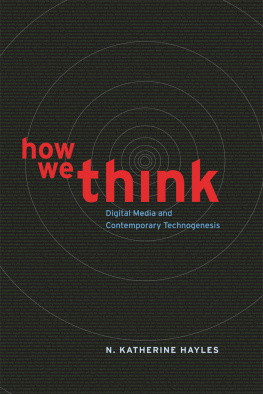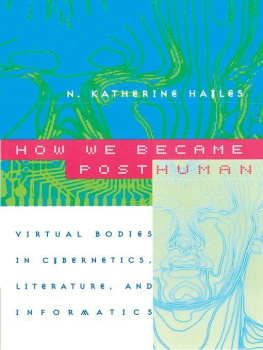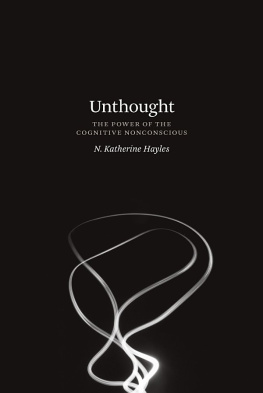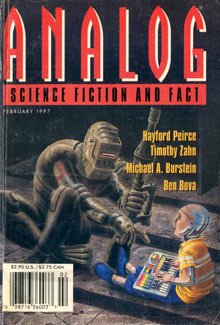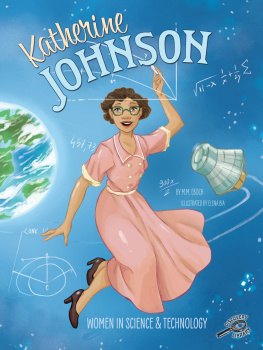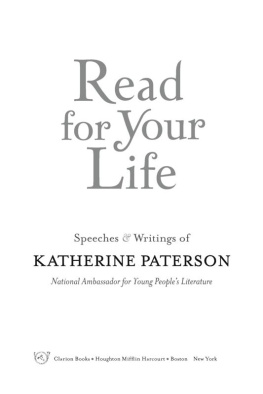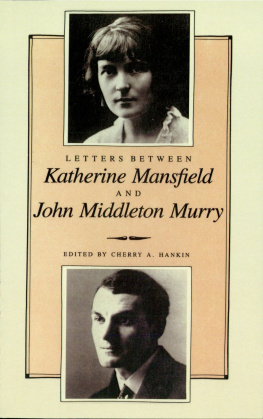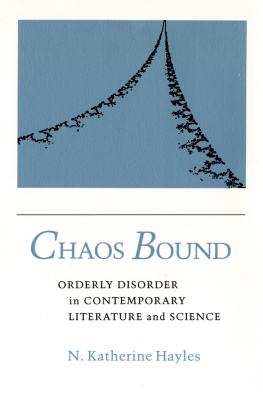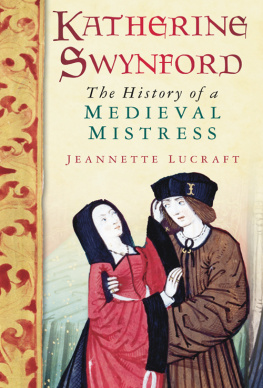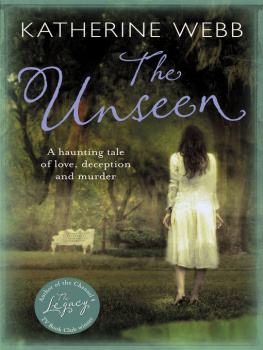N. Katherine Hayles - Postprint
Here you can read online N. Katherine Hayles - Postprint full text of the book (entire story) in english for free. Download pdf and epub, get meaning, cover and reviews about this ebook. publisher: Lightning Source Inc. (Tier 3), genre: Computer. Description of the work, (preface) as well as reviews are available. Best literature library LitArk.com created for fans of good reading and offers a wide selection of genres:
Romance novel
Science fiction
Adventure
Detective
Science
History
Home and family
Prose
Art
Politics
Computer
Non-fiction
Religion
Business
Children
Humor
Choose a favorite category and find really read worthwhile books. Enjoy immersion in the world of imagination, feel the emotions of the characters or learn something new for yourself, make an fascinating discovery.

- Book:Postprint
- Author:
- Publisher:Lightning Source Inc. (Tier 3)
- Genre:
- Rating:5 / 5
- Favourites:Add to favourites
- Your mark:
- 100
- 1
- 2
- 3
- 4
- 5
Postprint: summary, description and annotation
We offer to read an annotation, description, summary or preface (depends on what the author of the book "Postprint" wrote himself). If you haven't found the necessary information about the book — write in the comments, we will try to find it.
Postprint — read online for free the complete book (whole text) full work
Below is the text of the book, divided by pages. System saving the place of the last page read, allows you to conveniently read the book "Postprint" online for free, without having to search again every time where you left off. Put a bookmark, and you can go to the page where you finished reading at any time.
Font size:
Interval:
Bookmark:
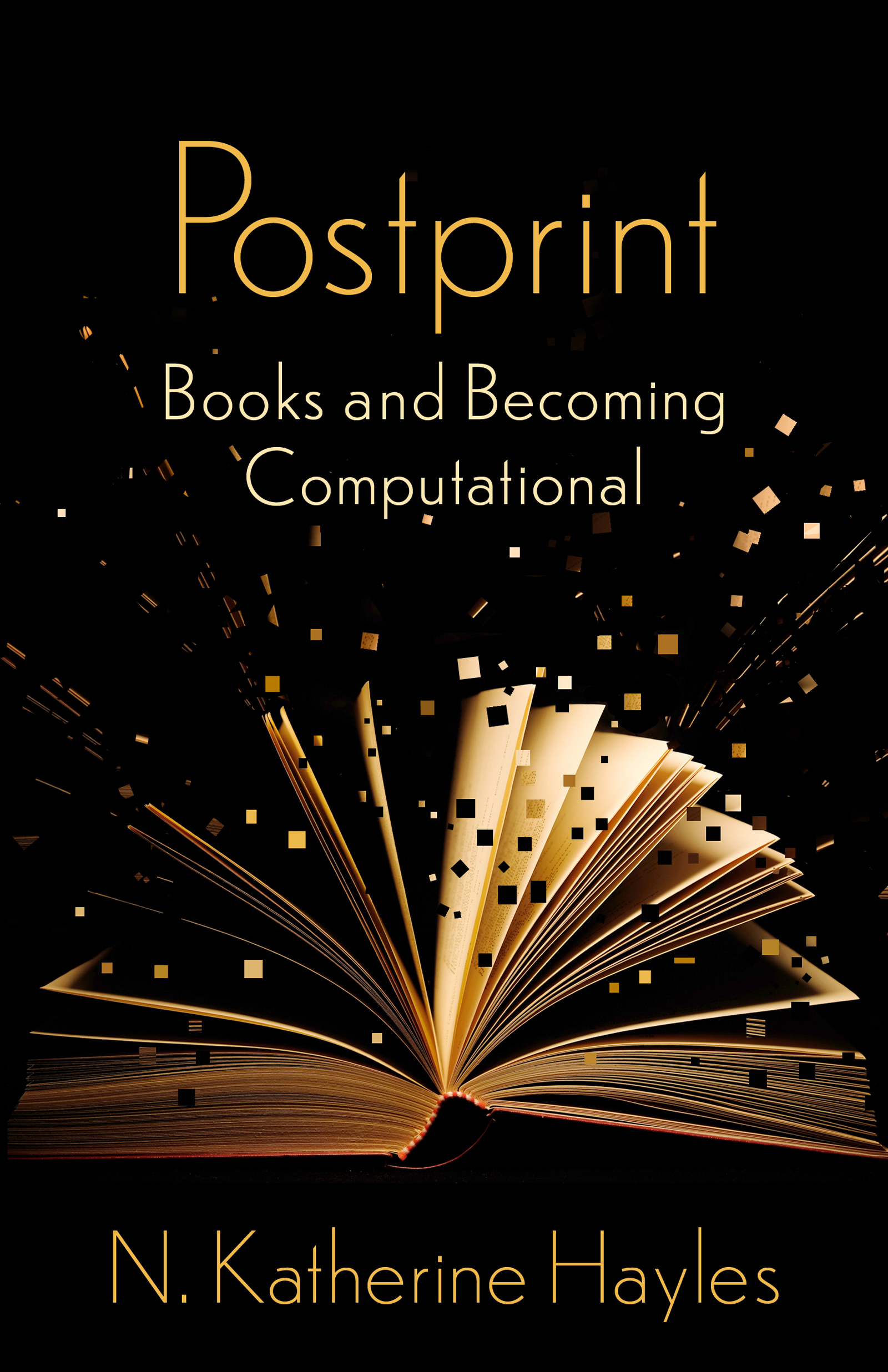
Postprint
THE WELLEK LIBRARY LECTURES
THE WELLEK LIBRARY LECTURES
The Wellek Library Lectures in Critical Theory are given annually at the University of California, Irvine, under the auspices of UCI Critical Theory. The following lectures were given in May 2016.
UCI Critical Theory
James A. Steintrager, Director
For a complete list of titles, see
N. Katherine Hayles
Postprint
Books and Becoming Computational
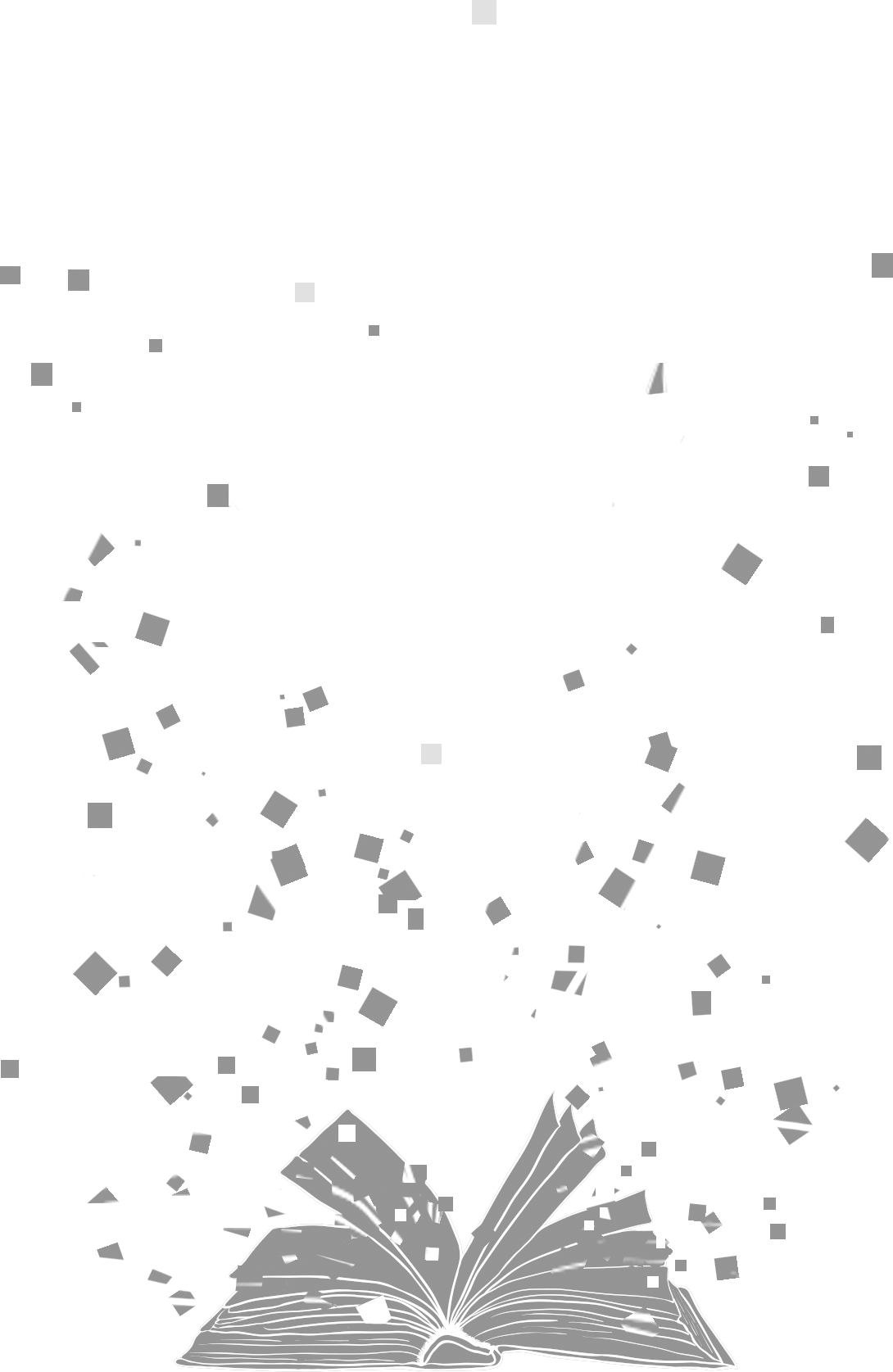
Columbia University Press New York

Columbia University Press
Publishers Since 1893
New YorkChichester, West Sussex
cup.columbia.edu
Copyright 2021 Columbia University Press
All rights reserved
E-ISBN 978-0-231-55255-4
Library of Congress Cataloging-in-Publication Data
Names: Hayles, N. Katherine, 1943 author.
Title: Postprint : books and becoming computational / N. Katherine Hayles.
Description: New York : Columbia University Press, [2020] | Series: The Wellek Library lectures | Includes bibliographical references and index.
Identifiers: LCCN 2020022410 (print) | LCCN 2020022411 (ebook) | ISBN 9780231198240 (hardcover) | ISBN 9780231198257 (trade paperback)
Subjects: LCSH: Book industries and tradeTechnological innovations. | Book industries and tradeSocial aspects. | Digital mediaSocial aspects. | Cognition. | Communication and technology.
Classification: LCC Z278 .H39 2020 (print) | LCC Z278 (ebook) | DDC 302.23/1dc23
LC record available at https://lccn.loc.gov/2020022410
LC ebook record available at https://lccn.loc.gov/2020022411
A Columbia University Press E-book.
CUP would be pleased to hear about your reading experience with this e-book at .
Cover image: Digital composite
Cover design: Lisa Hamm
Jacquard cards used to produce the Coquette label and the label
Pages from Livre de prires
Front view of the Paige Compositor
Rear view of the Paige Compositor
Side view of the Paige Compositor
Reproduction of a page from Paiges patent application
Section of type disc, Lumitype phototypesetter
Commercial version of Lumitype/Photon
Top view, fiber-optic bundle
View of fiber-optic bundle input and output
Page and image from The Wonderful World of Insects
Xerox DocuTech 128HLC
Cover image of Between Page and Screen
Composite screen shot from Between Page and Screen
Screen shot showing spinto projection from Between Page and Screen
Mirtha Dermisache, plate 1 in Selected Writings
Mirtha Dermisache, plate 5 in Selected Writings
Mirtha Dermisache, plate 12 in Selected Writings
Nick Sergeant, The Human Stain
T his book has been catalyzed by two major forces: my lifelong love of books and my intellectual engagement with the concept of cognitive assemblages. Growing up in very small town in northeast Missouri (population 1,014), I had few resources to satisfy my curiosity about the world, nature, and scienceno theater, no symphonies, no scientific instruments at home and barely any at school, no stimulating lectures by public intellectuals. In this preinternet era, the one resource I did have was print books. I devoured those at home before I was ten and then turned to the minuscule town library, which lasted until I was twelve or so. Then puberty struck, and my interests turned elsewhere for a while. Leaving that small town for college sparked my curiosity and widened my horizons; I would often read far into the night until the letters blurred on the page and dawn began to break. Books for me were objects of veneration, doors that opened onto vistas much broader, stranger, and more enticing than I could experience in person. So it was inevitable, I suppose, that I would one day write a book about print books.
It was not until I had developed the concept of cognitive assemblages, however, that I was able to bring together my affection for print with my intellectual interests in computation. I was fortunate to witness firsthand the enormous technological changes as computation came of age, from the first mainframe I worked on in college (fed by IBM cards and large enough to fill a room with all four kilobytes of memory) to microcomputers, word processing, desktop publishing, and then the amazing growth of the web. Through it all, I was fascinated by the technical devices themselves and even more by their implications for what it means to be human. Print books, too, in all their variety have also affected not only our ideas about the human but also the neuronal and synaptic pathways by which we understand the world and ourselves. The conjunction of print and computation, a configuration that I call postprint, thus presents a potent opportunity to explore through multiple registers, diverse historical events, and resonant metaphoric clusters our contemporary condition in developed societies.
On this journey, I have benefitted from many fellow travelers who have offered insights, stimulations, responses, and corrections. I am grateful to Matthew Kirschenbaum and John Maxwell for reading a draft of and offering comments as well as for their own excellent publications on print and computation. My colleagues at Duke University, including Rey Chow, Markos Hadjioannou, Mark Hansen, Mark Kruse, Carlos Rojas, Victoria Szabo, and Priscilla Wald generously shared ideas and initiated collaborative projects. Many former students, who have now become well-known scholars in their own right, have continued to challenge me to up my game, especially Zach Blas, Nathan Brown, Melody Jue, Kate Marshall, and Jessica Pressman. Francesca Farrando, Danuta Fjellestad, Patrick Jagoda, Todd Presner, and Rita Raley have been valuable sources of inspiration and collaboration, as have the research and books by Amarath Borsuk, Lisa Gitelman, Frank Romano, Garrett Stewart, Ted Striphas, and Edward Webster. I am grateful to the Literature Department of Duke University for support and help and to the English Department of the University of California, Los Angeles, for office space and computing support.
A version of three plates from Martha Dermisache, Selected Writings, ed. Daniel Owen and Lisa Pearson (New York: Siglio/Ugly Duckling Press, 2017), Estate of Mirtha Dermisache, Buenos Aires, 2020, images courtesy of Siglio/Ugly Duckling Press, New York. I also appreciate Amaranth Borsuk and Brad Bouses cooperation in reproducing images from their collaborative project Between Page and Screen.
Finally, I am very grateful to the editors and professionals at Columbia University Press for their invaluable help in preparing the manuscript for publication. This book originated as a series of three Ren Wellek lectures at the University of California, Irvine, in the spring of 2016, and I am grateful to the Department of Comparative Literature and UCI for sponsoring my visit. Wendy Lochner has been a supportive and patient interlocutor as the book gradually took form from this early venture. Annie Barva made many improvements in her copyediting, and Lowell Frye gently and persistently shephered the manuscript along. Special thanks are due to Michael Haskell and designer Lisa Hamm for their generosity and willingness to help me create the X-ray pages, even though it meant considerable extra work for them to do so. I hope that my readers will agree it was worth the effort.
Font size:
Interval:
Bookmark:
Similar books «Postprint»
Look at similar books to Postprint. We have selected literature similar in name and meaning in the hope of providing readers with more options to find new, interesting, not yet read works.
Discussion, reviews of the book Postprint and just readers' own opinions. Leave your comments, write what you think about the work, its meaning or the main characters. Specify what exactly you liked and what you didn't like, and why you think so.

